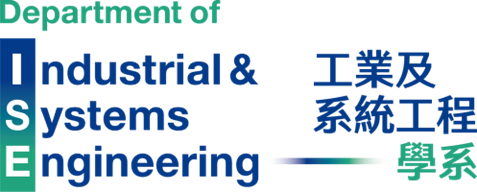Project:
Vcare - Vision Training VR Device
Award:
Gold Medal
Principal Investigator:
Dr TANG Yuk Ming
Senior Lecturer, Department of Industrial and Systems Engineering; Co-founder, Vcare Vision Technology Limited (a PolyU academic-led startup)


Details:
Vcare offers personalised vision correction training for myopia, amblyopia and strabismus. The solution combines hardware and software to provide engaging VR games and exercises, enabling active user participation. Unlike traditional methods, this non-invasive solution minimises side-effects and complications. Vcare has a patented multi-folded lens module with a varifocal mechanism in the VR headset. This innovative technology allows users to automatically adjust the focal length during their VR experience, providing optimal visual clarity without the need for manual adjustments or glasses for different distances. This design enhances flexibility and convenience, enabling users to freely navigate and interact within the VR environment while enjoying a clear visual experience. Prioritising rigorous research and clinical trials to ensure effectiveness and safety, the team has collaborated with eye care professionals to provide a safe, convenient and enjoyable alternative for vision correction training.
The project team “Vcare” has also established a start-up company to translate PolyU’s research into impactful products for society.
Project:
Novel Nano-imprinting Technology for Anti-counterfeiting Micro-images and Information Storage
Award:
Silver Medal
Principal Investigators:
Prof. Sandy Suet TO
Professor, State Key Laboratory of Ultraprecision Machining Technology, Department of Industrial and Systems Engineering
Dr Zhanwen SUN
Postdoctoral Fellow, State Key Laboratory of Ultraprecision Machining Technology, Department of Industrial and Systems Engineering
Dr Lenny Wai Sze YIP
Research Assistant Professor, State Key Laboratory of Ultraprecision Machining Technology, Department of Industrial and Systems Engineering

Details:
This invention provides a novel nano-imprinting technology for flexible machining anti-counterfeiting micro-images on precious products. Each pixel is encoded by adjusting its direction, in which way massive information is stored inside the micro-image. The invention can hide a string of anti-counterfeiting password into the micro-image, so compared with the traditional image anti-counterfeiting technology relying on geometric figures, the invention has higher anti-counterfeiting strength, and the micro-image cannot be forged without knowing the password. By combining the precision motion control technology with the piezoelectric drive technology, the invention can realize the high-precision machining of nanoscale microstructure, and thus can process micro-images and QR codes on a variety of industrial materials, and has a wide range of application. Therefore, the invention is expected to subvert the existing image anti-counterfeiting technology and apply it to the anti-counterfeiting of precious products.
Project:
WireInspect: Anomaly Detection System for Elevator Steel Wire Ropes Using Deep Learning Models
Award:
Silver Medal
Principal Investigators:
Dr Xiaoge ZHANG
Assistant Professor, Department of Industrial and Systems Engineering; Project Leader, Centre for Advances in Reliability and Safety (CAiRS)
Dr Rainbow Lee
Programme Manager, Centre for Advances in Reliability and Safety (CAiRS)
Mr Jack CHAN
Lead Engineer, Centre for Advances in Reliability and Safety (CAiRS)

Details:
Existing maintenance and inspection for steel wire ropes (SWRs) are typically dependent on manual inspection via visual checks and intensive measurements. To tackle this problem, we develop a principled uncertainty-aware deep learning algorithm established upon the magnetic flux leakage signals associated with SWRs for automatically classifying defects in elevator SWRs. The developed deep learning algorithm not only largely boosts classification efficiency, but also reliably identifies out-of-distribution data falling beyond the discernment framework that the model is trained for. The resulting accurate and reliable defect defection algorithm provides an advanced solution to investigate the health, degradation, and aging mechanisms of SWRs used in lift systems for assuring their functional safety.
Project:
AR Smart Headset with Gesture Recognition and Control
Award:
Bronze Medal
Principal Investigator:
Dr Carman LEE
Associate Professor, Department of Industrial and Systems Engineering
*Project from AiDLab (established under the AIR@InnoHK cluster in collaboration with the Royal College of Art, UK)

Details:
The AR Smart Headset transforms the user experience by merging augmented reality with gesture control. Its unique modular design integrates seamlessly with high-quality headphones, offering a value-added element to the headphones for industrial and entertainment purposes. The gesture control system enables effective control in noisy environments and supports passive QR code scanning from the egocentric view of the user for various applications.
By leveraging AR and AI technologies, the device augments the user’s perception with digital information. It replaces traditional control methods with intuitive hand gestures recognized by deep convolutional neural networks, providing an immersive and hands-free experience. The headset’s embedded camera captures the user’s viewpoint, allowing real-time interaction and seamless access to information via QR code scanning. Its potential application ranges across entertainment, industry, education, and communication, offering a dynamic and interactive user experience.
Project:
Intelligent Non-invasive Structural Health Inspection System for Multi-part Covers
Award:
Bronze Medal
Principal Investigators:
Dr TANG Yuk Ming
Senior Lecturer, Department of Industrial and Systems Engineering
Prof. YUNG Kai Leung
Chair Professor of Precision Engineering and Associate Head, Department of Industrial and Systems Engineering
Mr. LAM Chi Wo
Senior Scientific Officer, Department of Industrial and Systems Engineering


Details:
Multi-part covers are used for covering accesses to large manholes and desilting openings of drainage facilities. This non-intrusive structural health inspection system counts on AI-based analytic techniques for defects identification of multi-part covers. Without the need of any road closure and uncovering works, this system is capable of identifying a problematic multi-part cover based on acoustic emissions arising from live traffic traversing over the cover. It significantly improves inspection efficiency while reducing traffic impacts rendered by road closures.
Project:
Vision: Real-Time Defect Detection and Classification System Using Deep Learning for Multi-Material Components
Award:
Bronze Medal
Principal Investigators:
Dr Xiaoge ZHANG
Assistant Professor, Department of Industrial and Systems Engineering; Project Leader, Centre for Advances in Reliability and Safety (CAiRS)
LUK Shun Sun Lester
Senior Engineer, Centre for Advances in Reliability and Safety (CAiRS)
WONG Chak Nam Gary
General Manager, Centre for Advances in Reliability and Safety (CAiRS)
HUANG Jingyuan Jenny
Assistant Programme Manager, Centre for Advances in Reliability and Safety (CAiRS)

Details:
Defects in the anti-lock brake systems (ABS)-related components manufactured during the injection molding process need to be detected timely and accurately. To this end, we develop a fast and accurate real-time defect detection algorithm trained with environmental-fused augmented data to detect defective components in the ABS-related products. The developed defect detection system is deployed in the automobile industry Kenta Enterprise Company Limited for detecting multiple defects (e.g., break, shrinkage, and missing pin) in the anti-lock brake system-related components. The defect detection results are communicated with a programmable logic controller to control the filtering action of a robotic arm towards defective products. Our invention, on the one hand, achieves a detection rate that is even faster than the production rate in the production line. On the other hand, it boosts the detection efficiency of defective products in the massive production of ABS components.
| Topics | Research | Staff Achievement |
|---|---|
| Department of Industrial and Systems Engineering |
You may also like










